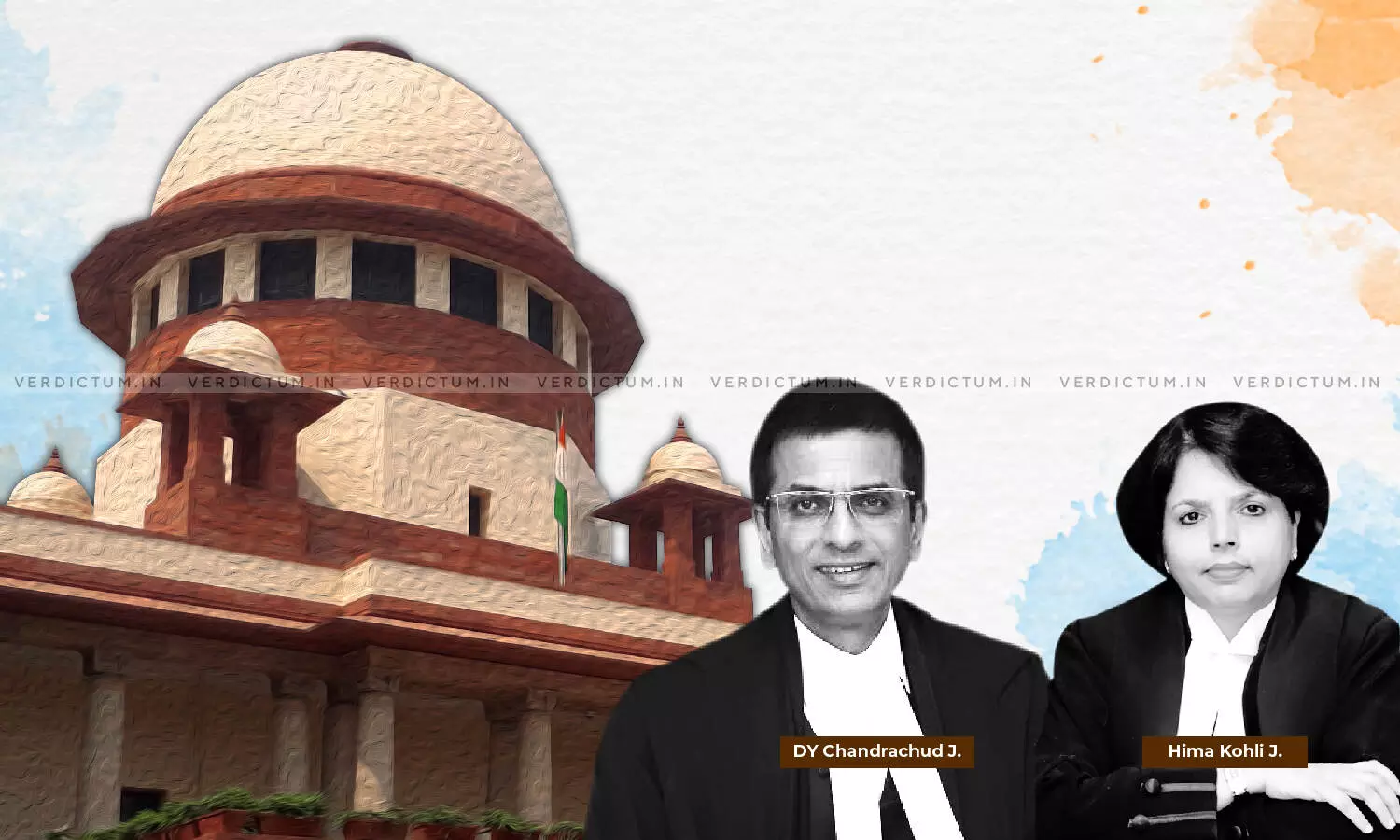
Two Finger Test Re-Victimizes & Re-Traumatizes Women, It Must Not Be Conducted In Cases Alleging Rape- SC
 |
|The Supreme Court has observed that the two-finger test re-victimizes and re-traumatizes women and is an affront to their dignity, thus it must not be conducted in cases alleging rape and sexual assault.
The Bench of Justice DY Chandrachud and Justice Hima Kohli while holding so observed that the Apex Court has time and again deprecated the use of the regressive and invasive test in such cases. Further, the Bench also held that the so-called test has no scientific basis and neither proves nor disproves allegations of rape.
While expressing concern, the Court observed that although the two-finger test was conducted over a decade ago, it is a regrettable fact that it continues to be conducted even today.
Furthermore, the Court has directed the Union Government and State Government to ensure that the guidelines formulated by the Ministry of Health and Family Welfare are circulated to all government and private hospitals.
The Court has also directed the government to conduct workshops for health providers to communicate the appropriate procedure to be adopted while examining survivors of sexual assault and rape.
The Bench has further directed the government to review the curriculum in medical schools to ensure that the two-finger test or per vaginum examination is not prescribed as one of the procedures to be adopted while examining survivors of sexual assault and rape.
The Court has also held that any person who conducts the test while examining a person alleged to have been subjected to sexual assault in contravention of the directions of the Court shall be guilty of misconduct.
The Bench additionally also highlighted the fact that whether a woman is "habituated to sexual intercourse" or "habitual to sexual intercourse" is irrelevant for the purpose of determining whether the ingredients of Section 375 IPC are present in a particular case.
Thus, in this context, the Bench observed-
"The so-called test is based on the incorrect assumption that a sexually active woman cannot be raped. Nothing could be further from the truth – a woman's sexual history is wholly immaterial while adjudicating whether the accused raped her. Further, the probative value of a woman's testimony does not depend upon her sexual history. It is patriarchal and sexist to suggest that a woman cannot be believed when she states that she was raped, merely for the reason that she is sexually active."
The Apex Court was hearing an appeal assailing the judgment of the Jharkhand High Court which had set aside the conviction in a rape-murder case and had acquitted the accused of all the charges. While the Sessions Judge had convicted the accused-respondent for offences punishable under Sections 302, 376, 341, and 448 of IPC and sentenced him to life imprisonment.
The issues dealt with by the Court were-
Whether the statement of the deceased is relevant under Section 32(1) of the Indian Evidence Act 1872.
Whether the prosecution has proved the charges against the respondent beyond a reasonable doubt.
Counsel Vishnu Sharma appeared for the Appellant while Counsel Braj Kishore Mishra appeared for the Respondent before the Court.
The Court while adjudicating upon the issues observed that there is no rule to the effect that a dying declaration is inadmissible when it is recorded by a police officer instead of a Magistrate. The Court in this context further added that although a dying declaration ought to be ideally recorded by a Magistrate if possible, it cannot be said that dying declarations recorded by police personnel are inadmissible for that reason alone.
The Court held that the issue of whether a dying declaration recorded by the police is admissible must be decided after considering the facts and circumstances of each case.
While relying upon the case of Ram Bihari Yadav v. State of Bihar, the Court observed the fact that a dying declaration is not in the form of questions and answers does not impact either its admissibility or its probative value.
Accordingly, the Court set aside the acquittal of the Respondent and restored the Sessions Court's judgment convicting the accused for offences punishable under Sections 302, 341, 376, and 448 of the IPC and sentencing him to life imprisonment.
Cause Title – The State of Jharkhand v. Shailendra Kumar Rai @ Pandav Rai
Click here to read/download the Judgment